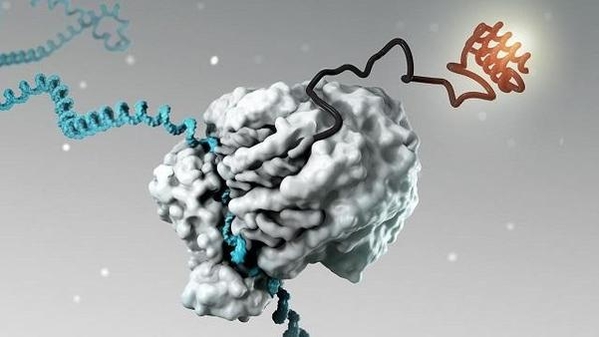Input 2021.03.02 14:03
The need for domestic consignment production amid supply uncertainty
The government promotes overseas technology acquisition in earnest

According to the quarantine authorities on the 2nd, the government plans to hold a videoconference on joint research with the National Institute of Allergy and Infectious Diseases (NIAID) on the 3rd to secure vaccine technology for’messenger ribonucleic acid (mRNA)’. On the 25th of last month, a similar discussion with Modena was held. As it is still in the early stages of discussion, the timing of securing the technology has not been decided.
The Korea Centers for Disease Control and Prevention (KCDC) diagnosed that “the relevant research is very insignificant in Korea,” and said, “We will come up with a plan to actually produce mRNA vaccines in Korea through specific working-level discussions following the video conference.” A pan-governmental organization called the’mRNA Vaccine Specialized Subcommittee’ was established to promote related projects.
The mRNA vaccine is the first type of vaccine commercialized by Pfizer and Moderna in the midst of the Corona 19 crisis. There are no companies in Korea that can make this vaccine yet. Unlike AstraZeneca and NovaVax vaccines, which are applied with existing technologies, are produced on consignment at SK Bioscience’s domestic plant, 10 million Pfizer vaccines and 20 million modders or 20 million vaccines have no choice but to rely solely on the supply from overseas.
In Europe, where mRNA vaccination has begun, supply uncertainty remains unchanged. On the day, according to Reuters, French health authorities allowed the AstraZeneca vaccine to be given to seniors aged 65 and over to replace the scarce Pfizer and modders. AstraZeneca vaccine has been restricted in the elderly due to lack of clinical data. In January, supply was delayed in various parts of Europe and the vaccination schedule was delayed.
In Australia, where the situation is similar to that of Korea, scientists at the National Academy of Sciences warned last month that “without the technology to produce mRNA vaccines, the state of being vulnerable to supply restrictions (by vaccine manufacturers) will continue” and urged their governments to have production capacity, a British media guardian. Said this. The Australian government also accepted this and began to secure technology.
Korean scientists have made similar points since last year. Ryu Chung-min, head of the Infectious Disease Research Center of the Korea Research Institute of Life Science, attended the forum of the Korea Federation of Science and Technology Societies in September last year and mentioned mRNA vaccines, saying, “There are too many vacant parts in the domestic vaccine production platform. I have to fill it up,” he said. Hee-chang Jang, director of the National Institute of Infectious Diseases, said in a forum last December, “The reason that domestic vaccine developers are lagging behind multinational pharmaceutical companies is because they do not have vaccine platform technology such as mRNA.” .

Vaccines are artificially created antigens that are part of the Corona 19 virus. Injecting a vaccine into the body stimulates the body’s immune system to make an immune component (neutralizing antibody), and the immune component actually prevents viral infection.
Instead of making the antigens themselves, Pfizer and Moderna developed a vaccine based on the antigen’s blueprint, the mRNA. Since it is simpler to make a blueprint, it has the advantage of relatively short development period and quick response to mutant viruses. In fact, the two companies ended up developing a vaccine, which usually takes 12 to 18 months, in 10 months.
